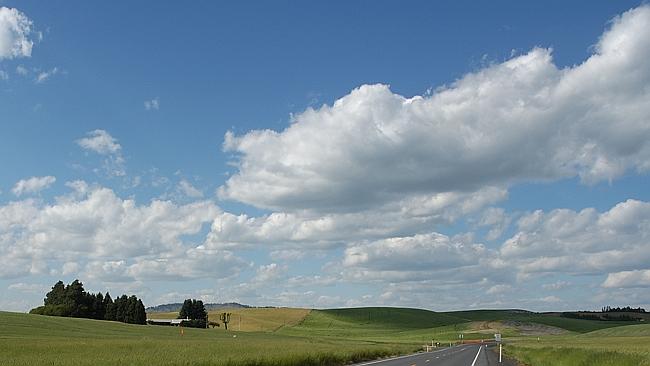Role of clouds on climate change needs study, say Greenhouse 2013 scientists
THINK climate scientists have got their heads stuck in the clouds? That's exactly where they should be, researchers are suggesting.

SOME of the world's leading climate scientists say the predictions about global warming would be more accurate if more was known about the influence of clouds.
The Intergovernmental Panel on Climate Change, in its latest report, has signalled for the first time that clouds are most likely contributing to warming the planet.
However, experts say it is still unclear how significant that contribution is.
And predictions around global warming in the IPCC's fifth assessment report - that temperatures will rise between 2C and 4.8C this century - would be more accurate if the influence clouds and rain had on the atmosphere was better understood, says Professor Christian Jakob.
Prof Jakob, the chairman of climate modelling at Monash University and a lead author on the IPCC's report, said the models that predict the future behaviour of clouds and rain were still too broad and unpredictable.
"These are the two areas (clouds and rain) where climate models are probably performing not as well as we would like them to," he said.
"It's certainly an issue we need to address.
"The issue is a lack of complexity in the models to predict the impact of clouds with great accuracy and low uncertainty".
"That will remain a challenge for the foreseeable future, I think," Prof Jakob said.
It is a crucial area of research and one of the final frontiers facing climate scientists, Prof Jakob said ahead of the Greenhouse 2013 conference in Adelaide.
Resources need to be focused on improving the area over the next decade.
"There are a number of issues that make clouds a hard problem. Lack of data is one," Prof Jakob said.
"While we have learned a lot especially over the last five or so years from new satellite observations, there are still gaps in our ability to measure clouds comprehensively, which limits our understanding."
Cloud expert Professor Steven Sherwood, of the University of New South Wales, said researchers struggled to properly understand the unpredictable nature of clouds and there was no clear theory on how they would contribute to global warming in the future.
"We have more confidence that they amplify climate change (but) there is still uncertainty about (that)," Prof Sherwood said.
"Every model predicts (clouds) will amplify climate change, it just depends by how much."
Professor Thomas Stocker, from the University of Bern in Switzerland and co-chairman of the IPCC Working Group I, said he was "quite satisfied" with the overall coverage of the report, which totalled more than one million words in 14 chapters.
Prof Stocker, who is also speaking at the Greenhouse 2013 conference, said the majority of the world's media led their reportage with the increased likelihood of human influence on global warming.
###





